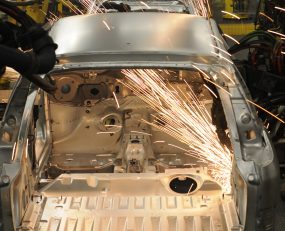
The intended merger announced last week of Peugeot SA (PSA/PSA Groupe) and Fiat Chrysler Automotive (FCA) is another development in the rationalisation of the internal combustion engine vehicle sector.
FCA has been attempting to find a partner to merge with for the best part of a decade, whilst Peugeot needs to sustain the momentum that it achieved after its near-death experience in 2013.
The merger makes some sense in that it would create the fourth larger vehicle manufacturer in the world, with a strong presence in both Europe and North America and a reasonable presence in China. The potential for rationalisation of product types and engineering platforms would be substantial. Greater purchasing leverage on the supply chain would be a vital aspect of any merger and the concentration of the production base would also be important.
The managements of both companies have a record of ruthlessness in cutting costs, resulting in the closure of plants and reducing the number of suppliers. Any new company would inevitably embark on considerable efforts in this area and this would have an impact on both Fiat’s and Peugeot’s existing logistics providers. With fewer assembly and engine plants there will be fewer logistics contracts, although the size of the contracts that remain may be larger.
The consequences may not be all bad. For example, the volume of finished vehicles that move between continents may well increase as the new company seeks to concentrate its production base. For example, the new company may wish to concentrate SUV production in Mexico and the US but sell these vehicles in Peugeot’s European markets.
There will be losers but also winners from this process. In particular it is tempting to think that former Peugeot logistics subsidiary GEFCO may benefit from greater access to markets in North America for both its inbound and finished vehicle business.
Yet the background to all this activity is the shift to new technology. Carlos Tavares, CEO of Peugeot admits this, describing the immediate future as “ten years of chaos”. This will result in yet more consolidation, particularly of engine works. Car manufacturers will need all of the capital they can get hold of to spend on new vehicle designs, placing yet more pressure on their cost base. Like the vehicle manufacturers themselves, logistics service providers will need to assess their positioning in what may be an increasingly distressed market.
Source: Transport Intelligence, November 5, 2019
Author: Thomas Cullen